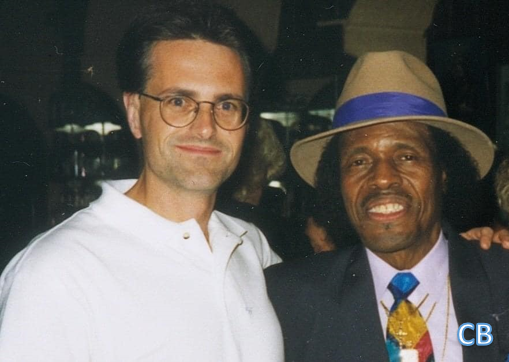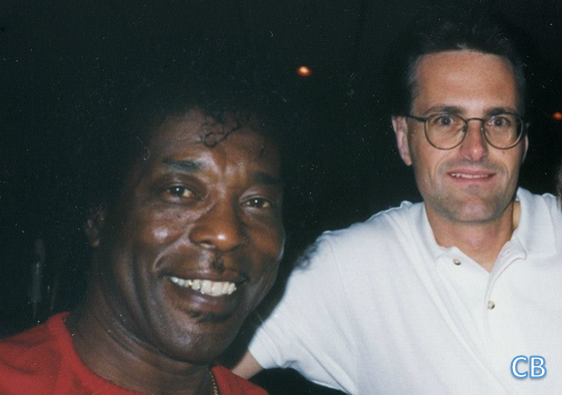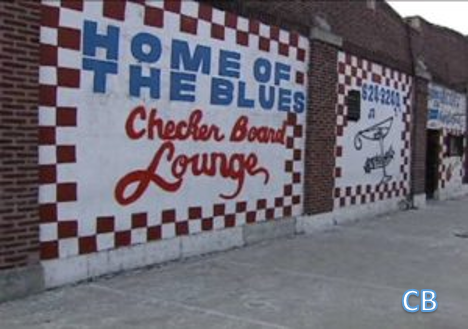Essential Blues Recording
Junior Wells - A Working Modern Chicago Blues Band Captured
Junior Wells – Hoodoo Man Blues – Delmark Records DE 612
While always having been touted as the first complete album recorded in a studio by a working modern Chicago blues band that would not include any 45rpm releases, that designation appears to be somewhat inaccurate as it pertains to Hoodoo Man Blues. The fine Muddy Waters album, Muddy Waters At Newport, was gleaned from a 1960 performance using his working band, a release seeing the light of day on the Chess label. It’s a trivial point, but worth noting. But, in the end, three things matter most. One, no 45rpm releases were provided from Muddy’s album. Two, the immediate prior fact supports the same situation with Junior’s album, so the integrity of the statement regarding the release of 45rpm records as it relates to Hoodoo Man Blues is upheld. Three, and most importantly, Hoodoo Man Blues remains one of the most important modern blues releases. It is Chicago blues of the highest distinction. It is timeless, as well.
Bob Koester was the founder and visionary behind Delmark Records. He was also the owner of Seymour’s Jazz Mart, then the Jazz Record Mart (at various locations), and finally Bob’s Blues & Jazz Mart, all in Chicago. Koester had an encyclopedic familiarity of all things blues in Chicago (let alone his broad knowledge base on jazz which is another subject entirely). He was a frequent Saturday night attendee, and a near regular audience member on Monday nights, at Theresa’s, the legendary south side Chicago blues club. If anyone wanted to know who was playing where in Chicago on any given night, Koester was the guy you went to for information, with him often organizing guided trips into the rough-and-tumble south and west side Chicago blues worlds. Koester knew what blues music was being played where. The Jazz Record Mart was more than the place to buy records; it was the blues sanctuary from which Koester provided guidance into the blues for both the uninitiated, and the most seasoned, of blues enthusiasts. He was a blues mentor.
I make no bones about being a great admirer of both Koester and Delmark Records, as together they were extremely instrumental in offering tremendous currency to the blues to an entirely new blues audience long after earlier legendary Chicago labels such as Chess, Vee-Jay, United, and States, among many others, melted into obscurity. Koester ensured that his blues audience understood the relevance of blues masters of the past such as Arthur “Big Boy” Crudup, Big Joe Williams, and Roosevelt Sykes, but sought to have them also tuned into the exciting new modern electric blues sounds of Junior Wells, Jimmy Dawkins, Magic Sam, J.B. Hutto, Jimmy Johnson, Luther Allison, and Otis Rush, among many others. These bluesmen were not only influencing a new stable of blues artists, but rock and roll players, as well.
As exciting as it was to make one of my regular Saturday morning runs into Chicago to literally be waiting at the front door of the Jazz Record Mart when it opened at 10am, equally thrilling was knowing that Koester would be there. He was always there on Saturdays. To me, he was a god. He was accessible. And, just being in his presence meant something special. Perhaps, the man lived the blues life I would have celebrated had it been my own.
Sparse. Sparse is a word that means scarce or meager. But in context of Hoodoo Man Blues, “sparse” is perfect. This collection is not overly-produced, as it only took seven hours total of recording time over two days in September, 1965 to compile at Sound Studios in Chicago. Further ensuring expediency was that the two-track recording process did not require mixing. Koester was brilliant in allowing Junior and his band to have complete freedom over the length of the individual songs. Even when Buddy Guy’s guitar amp failed, an improvisational remedy of running his sound through a Hammond B-3 Leslie speaker was deployed. Simply, nothing was made complicated. If you will, the collective sparseness equated to an amazingly satisfying totality. The results are legendary.
At the time of Hoodoo Man Blues, Junior was still playing a lot of tasteful, powerful harmonica. And that is not said to take anything away from Junior, as in later years his focus on-stage was more about singing and show, giving ample time for his bands to display their individual and collective wares. But this collection captures the full array of harmonica skills that Junior held in his arsenal. For many years, that made him shine in the same light as perhaps the most brilliant of all post-WW II blues harmonica giants, Little Walter, a man who Junior replaced in Muddy Waters’ band when Walter’s career took off on the success of “Juke”.
I was fortunate to see Junior in the small south side and larger north side Chicago blues clubs, and this collection has that spartan, deep-feeling aura that was so prevalent when Junior played the south side. And, wasn’t that supposed to be the point of this album? Using Buddy Guy on guitar, Jack Myers on bass, and Billy Warren on drums, there is an economic approach to this work that places a strong emphasis on touch, emotional delivery, respectful dynamics and interplay, all the while making it sound effortless and devoid of ego. It was about the songs. It was about the sentiments. It was about the dynamics. It was about how the blues was being played in the black bars and clubs in Chicago.
There is confidence, coolness, pain, and joy in Junior’s singing. Whatever one of his blues songs was trying to convey, Junior put the feeling across without uncertainty. His harmonica playing brays both self-assuredness and pain given the song’s scenario, and he deploys his full array of talents to their best effects. Junior’s strong bandleading skills are evident, as each blues shines on its own merits. What is required is offered at its most effective best. This is lean meat; no fat.
Buddy Guy is at his best here, weaving in and out of Junior’s singing and harmonica playing, the point-counterpoint within the proceedings, never overwhelming, but always complementing. It is always tone, touch, and respect from Buddy as his talents add either the single note runs, sustained note dramatics, or speedy flourishes required given the song. Bravo, indeed.
In no way relegated to the background are the rhythm section capacities of Myers and Warren. Myers’ tasteful bass work highly-succeeds in what it should do; provide the undercurrent necessary to push a tune forward given its required feeling. Warren’s percussion work is sensational in its simplistic yet galvanizing framework. It is subtle in its excitement, if that makes any sense. Without Myers and Warren, this collection fails. It just couldn’t exist.
Just inside and to the right of the front door of the now-gone New Checkerboard Lounge on E. 43rd St. in Chicago, was a poker table where a game of bid whist was always taking place. Generally, the bar with the iconic powder blue rotary telephone was filled by regulars, with the music room to the left occupied also by locals, in addition to those wanting to experience the blues in its most authentic urban form. The long narrow tables, hazy smoke, cramped stage, and sticky floors fit the blues perfectly. Normally in the crowd, blues performers of various notoriety could be found, wanting to join whatever band was playing so that they may keep their name viable, and their talents remembered. It was how the game was played.
Chances are, the blues being performed at the Checkerboard sounded very much like that found on Hoodoo Man Blues. That is the highest compliment that I can give this collection. It is a blues recording that commands to be in the library of any blues fan. A blues collection is weaker for not having it. Strengthen your collection with it, then, should you not have it.
Did I mention that this collection was inducted into the GRAMMY© Hall Of Fame in 2008? Icing on the cake! This is historic work, indeed!


